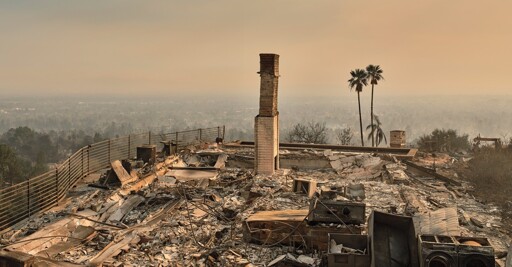Earlier this year, in the foothills of the San Gabriel Mountains, a graveyard was spared by the fire that sent thousands of Los Angeles residents fleeing into the coal-black night. Here, in Mountain View Cemetery, lie the bones of Octavia Butler, the famed science-fiction writer who spent her life in Pasadena and Altadena, both of which had burned. Trinkets offered by fans often decorate Butler’s unassuming grave. A footstone is inscribed with a quotation from her Parable of the Sower : ALL THAT YOU TOUCH, YOU CHANGE. ALL THAT YOU CHANGE, CHANGES YOU.
In that dystopian novel, published in 1993 and set in the mid-2020s, the United States still exists but has been warped by global warming, and its authoritarian government has ceded most of the administration of day-to-day matters to corrupt companies. In Butler’s neo-feudal vision, states and cities erect strict borders to deter migrants, the gap between rich and poor has widened, and massive wildfires in Southern California drive the state’s decline.
It has become commonplace to label Butler a prophet. She didn’t get everything right about the United States today. But even in the things that haven’t happened, exactly, one can see analogs to real life.
Butler, however, considered herself merely an analyst—a “histofuturist.” She often said that her primary skill was simply learning from the past. In her research for Parable, she studied times of rising political strife and demagoguery, along with America’s history of class and racial inequality. She studied what was at the time an emerging scientific consensus regarding global warming, a body of research that even then predicted fires and floods, and warned of political instability.



it will, but in name only